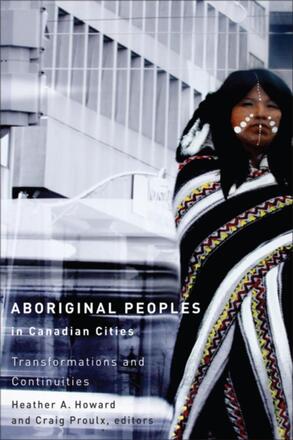
Aboriginal Peoples in Canadian Cities
Transformations and Continuities
La description
Since the 1970s, Aboriginal people have been more likely to live in Canadian cities than on reserves or in rural areas. Aboriginal rural-to-urban migration and the development of urban Aboriginal communities represent one of the most significant shifts in the histories and cultures of Aboriginal peoples in Canada. The essays in Aboriginal Peoples in Canadian Cities: Transformations and Continuities are from contributors directly engaged in urban Aboriginal communities; they draw on extensive ethnographic research on and by Aboriginal people and their own lived experiences. The interdisciplinary studies of urban Aboriginal community and identity collected in this volume offer narratives of unique experiences and aspects of urban Aboriginal life. They provide innovative perspectives on cultural transformation and continuity and demonstrate how comparative examinations of the diversity within and across urban Aboriginal experiences contribute to broader understandings of the relationship between Aboriginal peoples and the Canadian state and to theoretical debates about power dynamics in the production of community and in processes of identity formation.
Reviews
Research with and by Aboriginal peoples in urban contexts across Canada, mainly using ethnographic methods or essays based on lived experiences, reinforces the authority of each of the book's 12 chapters. Summing Up: Recommended. All levels/libraries.
- G. Bruyere, Nicola Valley Institute of Technology, Choice, January 2012, 2012 January
An important, well-written collection of papers which ought to be compulsory reading for all serious scholars of contemporary Aboriginal affairs.
- John Loxley, University of Manitoba, The Canadian Journal of Native Studies, Volume XXXII, No 1, 2012, 2013 February
In some respects, this comprehensive anthology represents the cutting edge in a growing field of study related to urban Aboriginal communities in Canada. With a focus ranging from Toronto to Vancouver, the book contains fascinating new studies, including the experiences of Aboriginal employees at Ontario's Casino Rama, the rebuilding of Papaschase First Nation in Edmonton, and how Plains culture has been adopted as a form of healing in Vancouver. While the authors acknowledge the absence of voices addressing the Atlantic provinces and Quebec, this is offset by the strength of offerings from the Prairies, which include a textual analysis of media racism, a focus on Aboriginal street gangs, and an exploration of hip-hop culture. Notably, in a context in which Inuit communities are often ignored, the book includes a study of Inuit communities in Ottawa.
- Bonita Lawrence, York University, Great Plains Research, Vol. 23, no. 1, 2013, 2013 May